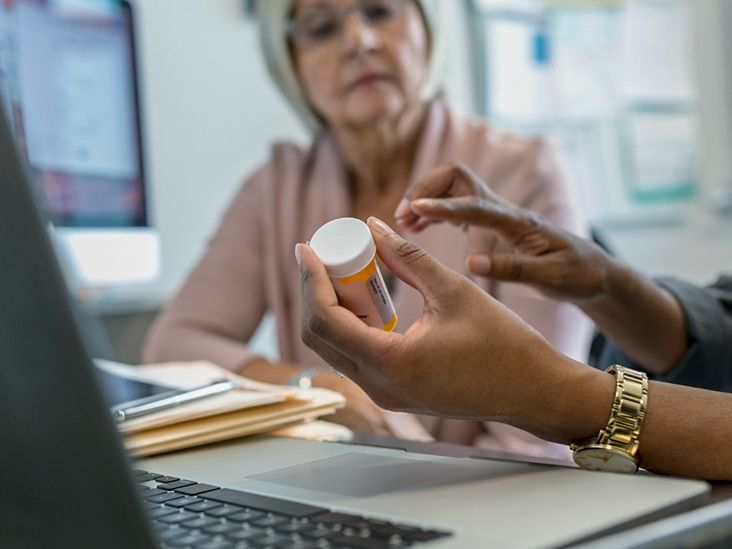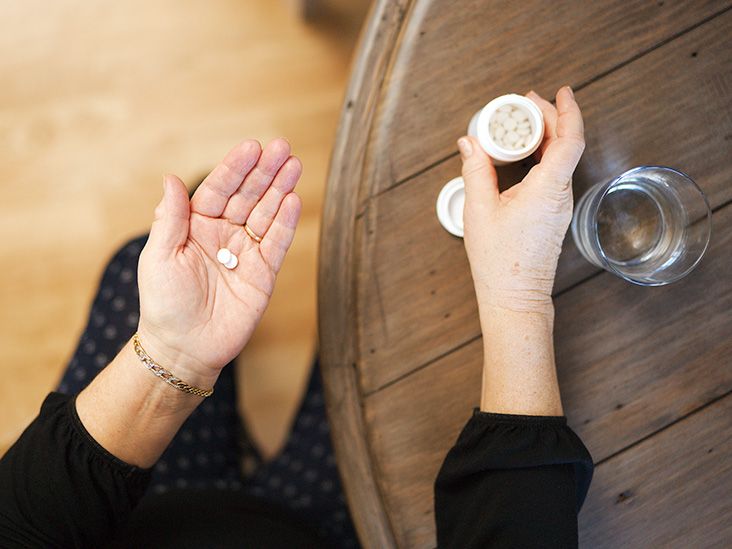Statin intolerance can increase cholesterol levels by limiting your therapeutic options and contributing to a phenomenon known as “statin rebound.”
Statins are the go-to medications prescribed to help manage high cholesterol. But they aren’t practical for everyone. When issues such as muscle pain and weakness lead you to discontinue statin use or explore alternative options, you may have a statin intolerance.
According to the latest definition from the National Lipid Association (NLA), statin intolerance occurs across a spectrum, with complete statin intolerance defined as the inability to tolerate any lipid-lowering dose of a statin medication.
Statin intolerance can raise your cholesterol levels by impacting your treatment options and causing physiological symptoms related to statin withdrawal. Here’s what to know.
Statins are a class of medications used to treat high cholesterol, also known as hypercholesterolemia. They’re one type of lipid-lowering medication, a drug that helps reduce fats (lipids) in your bloodstream.
Statins
Statins inhibit enzymes responsible for cholesterol production in your liver. Lowering cholesterol production reduces the amount of very-low-density-lipoproteins (VLDL), the particles that transport triglycerides. The decrease in cholesterol production also increases the number of LDL cholesterol receptors produced by your liver cells, which helps pull LDL cholesterol from the bloodstream.
In addition to reducing LDL and triglycerides, statins marginally increase your high-density lipoprotein (HDL) cholesterol, or “good” cholesterol, and provide anti-inflammatory benefits for your cardiovascular system.
When you experience negative side effects on statins that lead you to lower the dose or stop taking them altogether, it’s known as statin intolerance.
The NLA considers someone statin intolerant if they’ve experienced adverse events with at least two different statins at the lowest starting dose possible for one of those medications. If you experience statin intolerance, symptoms improve significantly or resolve completely once you decrease or stop the medication.
Statin intolerance can affect multiple organ systems in the body, but the most common symptoms are seen in the musculoskeletal system, and include:
- muscle weakness
- soreness
- aches
- cramps
- fatigue
Some people may also develop myopathy, unexplained muscle pain or weakness accompanied by elevated levels of the enzyme creatine kinase in the blood. In very rare cases, rhabdomyolysis is possible. Rhabdomyolysis is a potentially life threatening condition caused by the rapid breakdown of skeletal muscle tissue.
However, some research has found that, in randomized control groups, statin intolerance is not noted any more in statin groups than in placebo groups. It’s thought that the reputation and expectation of the side effects from statins may actually contribute to the occurrence of these side effects.
When you have statin intolerance, you’re at an elevated risk for high cholesterol for two main reasons.
It reduces your therapeutic options
Statin intolerance can reduce the number of treatment options available to help you manage high cholesterol.
It affects your ability to take statins, one of the first-line medications for hypercholesterolemia. Discontinuing or reducing the dose of statins limits their cholesterol-lowering benefits in your body. When you stop treatment for high cholesterol, it allows cholesterol levels to return to pre-treatment levels or increase even higher.
However, there are many more options for lipid control now than there were previously — many of which are very effective at treating high cholesterol. While some of these medications can be costly, it should be covered by your insurance if you have statin intolerance.
It causes physiological withdrawal symptoms
Stopping statins can cause a set of withdrawal symptoms, sometimes referred to as “statin withdrawal syndrome.”
Among these symptoms is “statin rebound,” a rapid increase in LDL cholesterol and triglycerides that occurs as your body starts producing cholesterol again. Statin rebound can drive your cholesterol up to pre-treatment levels or higher.
When you discontinue statins, it can cause more than an elevation in cholesterol.
Statin withdrawal syndrome can also lead to an increase in:
- inflammation
- oxidative stress
- blood vessel dysfunction
- blood clot formation
According to research, the discontinuation of statins is associated with an increased risk for cardiovascular events for some people.
If statin intolerance prevents you from taking these medications, your doctor will recommend alternative lipid-lowering therapies. While statins are considered the first-line choice for lowering cholesterol, other drugs that can be used to lower lipids
- adenosine triphosphate-citrate lyase (ACL) inhibitors
- bile acid sequestrants
- ezetimibe
- fibrates
- nicotinic acid
- omega-3s
- PCSK9 inhibitors
Medication is just one piece of the puzzle for managing cholesterol. In addition to finding a non-statin drug that works for you, your doctor will recommend lifestyle changes that can help lower cholesterol,
- eating a heart-healthy diet focused on fruits, vegetables, whole grains, poultry, fish, nuts, and non-tropical vegetable oils
- getting at least 150 minutes of moderate-intensity aerobic exercise each week
- limiting alcohol intake
- quitting smoking
- reaching and maintaining a healthy weight
- monitoring your overall health
When side effects from statins require you to take a lower dose — or stop taking them altogether — it’s known as statin intolerance.
Statin intolerance can increase your cholesterol levels because it reduces your treatment options and may lead to statin rebound. If you’re unable to take statins for high cholesterol, work with your doctor to choose a different lipid-lowering medication and make heart-healthy lifestyle modifications to your diet and exercise routine.









